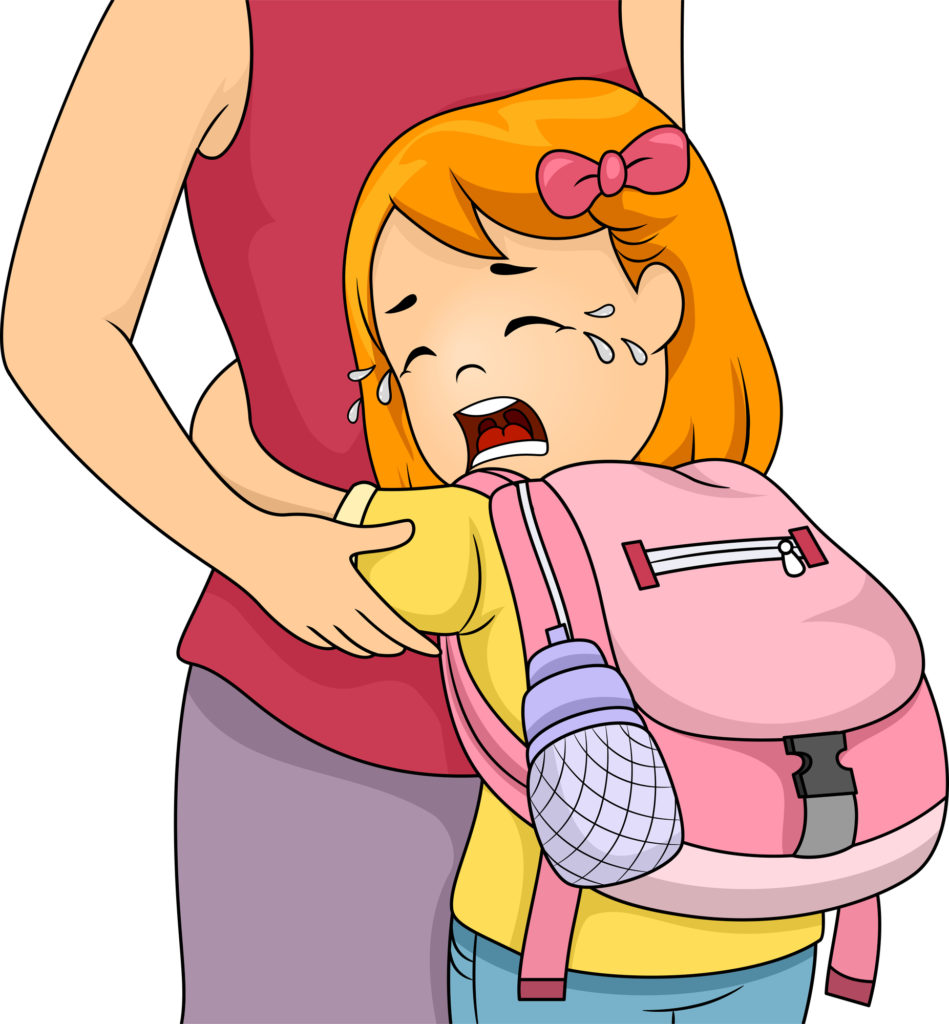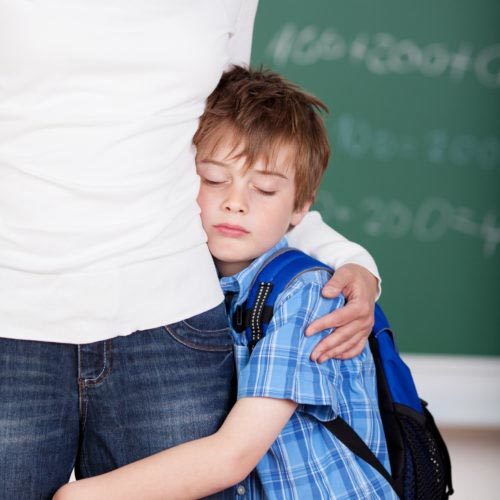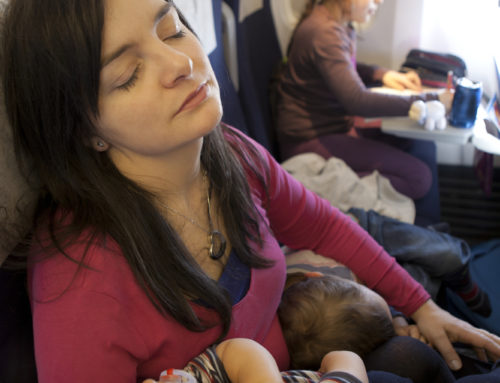Many children can be afraid when they face returning or starting school. It is very normal, especially for younger children, to have a degree of fear of leaving mum and going to school, especially preschool.
Is fear similar to separation anxiety?
Separation anxiety reflects a child wanting or needing to hold on to what they feel is safe and known. A parent is their security and some children can feel vulnerable and fearful of the unknown ahead. While this emotional usually dissolves as the child develops, when young, under 6 or 7 years, it can be very overwhelming.
Only about 4% of our pre-schoolers and school-age children develop separation anxiety. Many other children feel fear for a short while settling into a new environment and this feeling passes over a few days or weeks. A child who has a separation anxiety disorder may seem particularly and regularly upset about being separated from a parent. They fear a range of sometimes irrational thoughts that may occur such as:
• Will I be safe here?
• Is anyone going to hurt me?
• Will my parent return to get me?
• Could something happen to my mummy or daddy while I am not with my parent
• Can my parent cope without me?
All these fears can run through a young child’s mind at warp speed. This can create a feeling of insecurity and anxiety. They may indicate they feel sick or unwell, therefore, unable to attend their school on that day and need to remain with their parent. The child is living with the unknown.
It is entirely normal during early childhood to have some trepidation regarding starting preschool, primary school or returning to school after a long break. While it usually resolves itself once the child makes connections with peers and teachers, sometimes it can last longer if the child has had any painful separation issues in the early years. The child’s attempts to hold on to what is safe in a very scary world and can develop an irrational fear.
It can present as a disorder if:
• Severe anxiety seems excessive compared to other children the same age
• Your child’s anxiety has gone on for over least four weeks
• The anxiety interferes with your child’s life
• A parent suffers anxiety and their fears and uncertainty have been passed on to the child
• There is ongoing uncertainty in the child’s life regarding present parents.
We see more children presenting with separation anxiety if either parent has a mental health issue, has an addiction to drugs or alcohol, or if there are high conflict and arguments within the family unit.
What can we do to reduce our child’s separation fears?
Children fearful of separating from a parent can feel this not just about school, but also about visiting family, going to a party where a parent does not remain, in fact, any situation the child is left unsupervised by the parent.
We need to look after our child’s sense of security. Let them know in advance, a few hours (if four years or under) or the following day’s events (if over 4 or school age), so they know in advance this will occur.
In the article ‘Preparing Your Child for School’ there are many tips to help your child be prepared and ready while lowering their feeling of fear of anxiety. Following these tips can greatly assist you and your child. There are many tips and advice parents can take to help their child settle including:
• Prepare your child, so they know where they are going
• Settle your child into a fun activity before leaving
• Say goodbye to your child briefly, never drag it out or overstay
• Keep a relaxed and happy look when leaving. If a parent appears worried or sad, the child may think this place isn’t safe and can feel fear or anxiety
• Always leave with a happy smile and wave, even if your child is crying
If your child is returning to school discuss with them everything they will learn this year. Go with them, perhaps the first week and where possible either pick them up or have a close friend or family member collect them from school.

Never tell them you will miss them or cry, showing apprehension at saying goodbye. We as parents must smile, be excited and happy they are starting a new phase of life. They are growing and developing into more independent people, which is the job of every parent to ensure their child achieves this. Tell them how much you look forward to hearing about their day, everything they did and what they enjoyed.
We do not tell them they will have a great day because if they do not, their trust in your words and advice can become dented. We can say to them we hope they have a wonderful day rather than telling them they will have a wonderful day. We instruct them clearly what time and where they will be collected and by whom. This decreases their confusion and fear.
We ask them if they have concerns and we speak about them most positively, but we never dismiss them or tell them it is silly or ‘you will be fine’. We empathise, listen and ask what you can do to help them feel better.
Ensuring they feel loved, respected and valued is a significant influence to break the separation anxiety emotion they may currently feel. This doesn’t mean you don’t show this daily; it means your child needs more of it at this time.
Children are not always the only ones to feel uncomfortable when a parent leaves. Most parents can feel some level of anxiety when saying goodbye to their child. It can be most powerful in the first year of school. Parents often worry about not being there to protect their child, their child’s safety, if they are eating correctly or enough, children’s friendships and teachers.
A healthy bond with your child means a certain degree of anxiety when you are not there. The goal isn’t to get rid of worry as nerves are part of the parenting instinct that helps to make good decisions. It is a matter of learning how to control and manage them. Children are surprisingly adaptive and usually manage to find their way.
Parents can also take some natural proactive steps to help them self and their child. Making time for yourself to de-stress and lower your level of anxiety is essential and will positively influence your child. Visit Virtual Hypnotherapy to grab the best session to keep and use, anytime you feel the need to lower your stress levels or let go of past trauma. You can learn to refocus your mind to become happier, more balanced and more relaxed in life. Treating and lowing the stress within your mind has a profoundly positive effect on your mind and body. After all, it is your mind creating these thoughts. Therefore, your mind can uncreate and adjust to more positive thoughts as well.
You can also take natural vitamins to assist including:
Magnesium – as studies have found deficiencies can increase a feeling of anxiety Increasing Magnesium in your diet is easy. Foods high in Magnesium include seeds such as pumpkin, sunflower, flax and sesame seeds.
Omega 3 Fatty Acids have been shown in numerous studies to have significant mental health benefits linked to aid depression, anxiety and ADHD.
Vitamin B Complex has been well documented and linked to problems with the nervous system, including anxiety. It is safe and easy to increase B vitamins to help decrease anxious symptoms. It is a water-soluble vitamin so needs replenishment as it is not stored in the body. Good sources of B vitamins include:
• Pork, berries, legumes, lean meats, nuts (B1)
• Eggs, dark green vegetables, fish, grains, lean meat, mushrooms (B2)
• Sunflower seeds, tuna, poultry, potato, organ meats (B3)
• Organ meats, avocados, broccoli, mushrooms (B5)
• Green beans, whole grains, spinach, fish, bananas (B6)
• Egg yolks, fish, organ meats, sweet potatoes (B7)
• Green leafy vegetables, legumes, tofu (B9)
• Fish, eggs, shellfish (B12)
Vitamin C (another water-soluble vitamin) supports the adrenal glands and because they work overtime when anxiety strikes, this is an essential vitamin to replace daily.
Read more from Dr Karen






